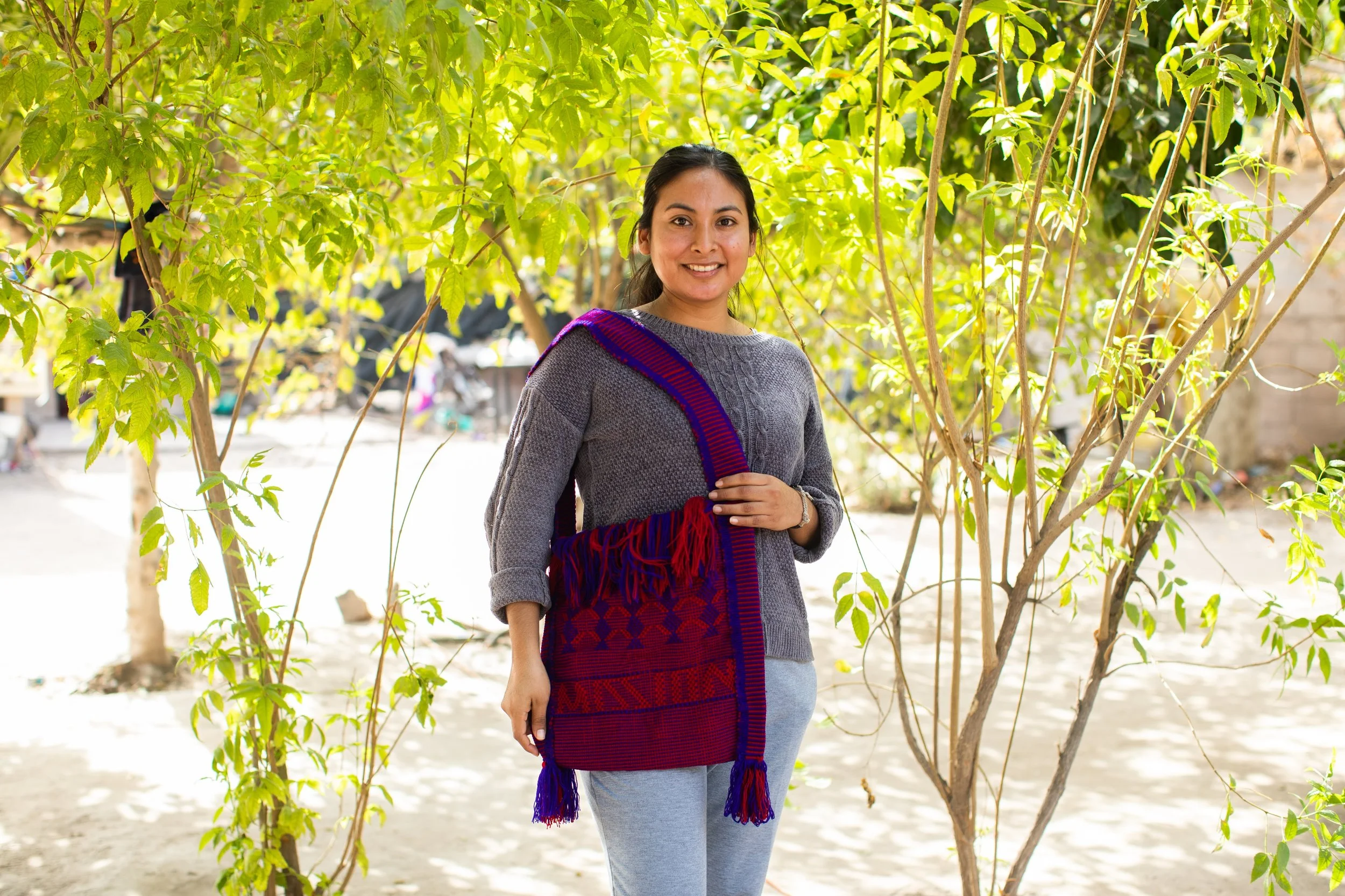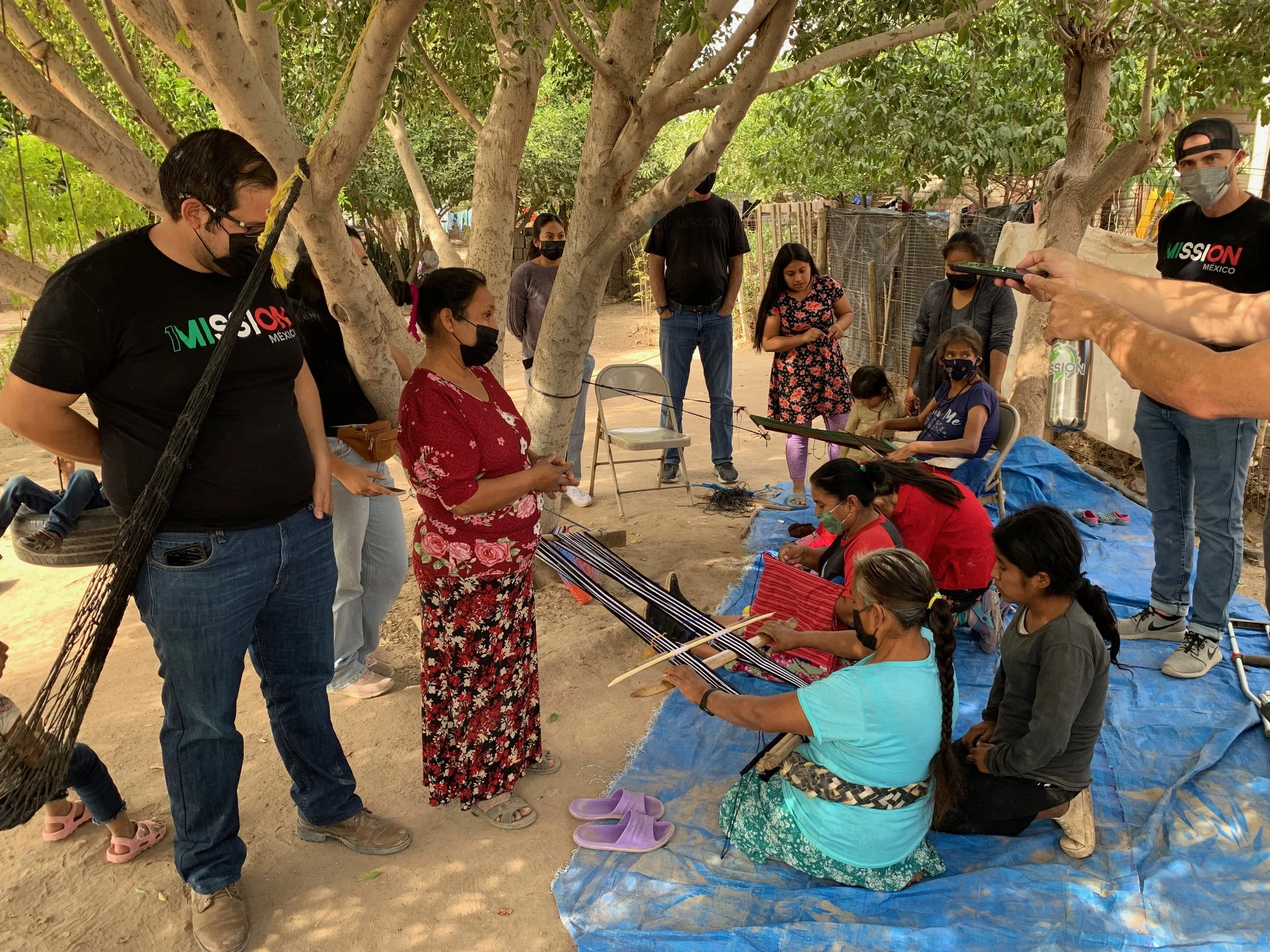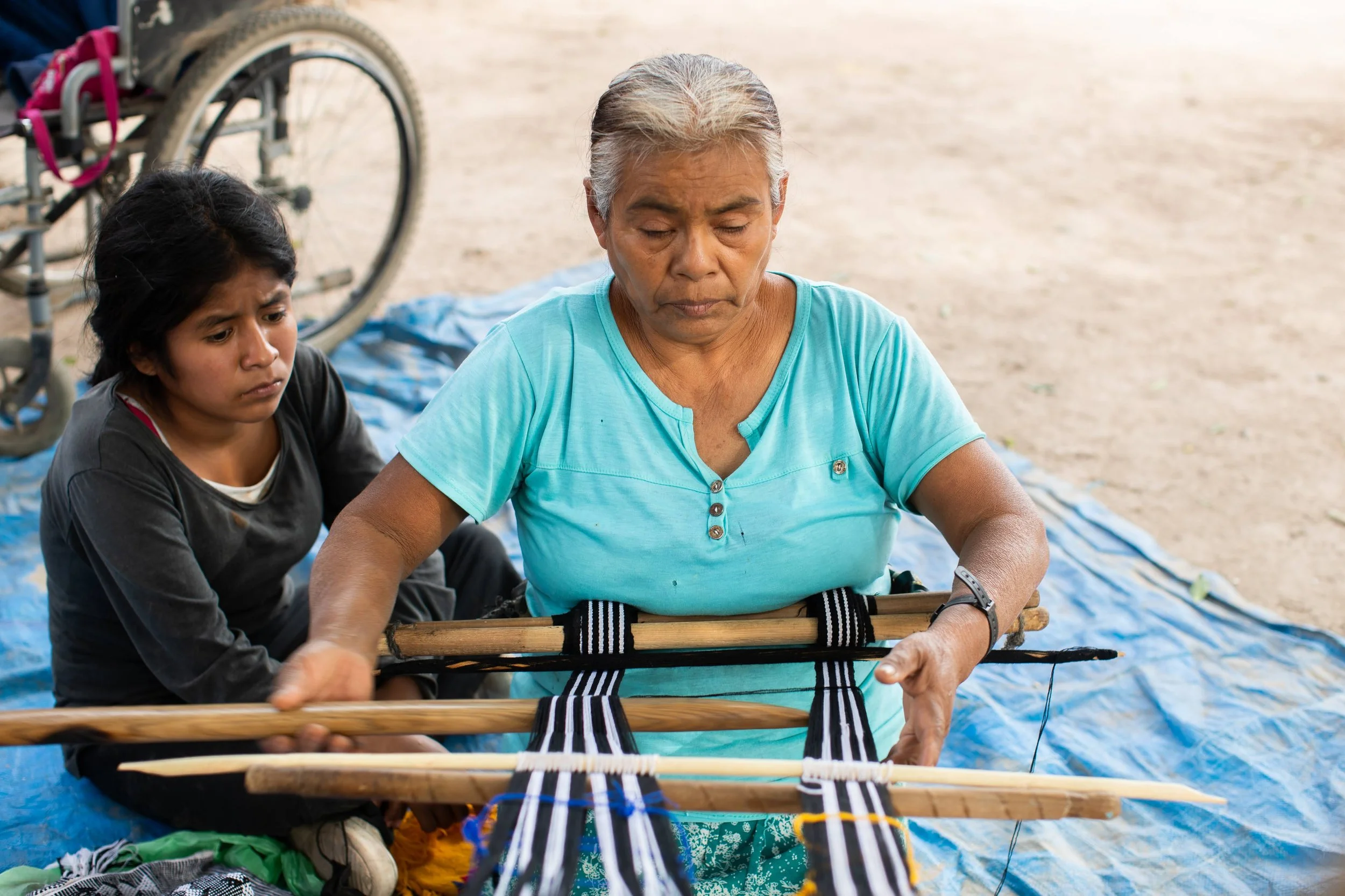Weaving The Past Into The Future
Note: this post originally appeared on the 1MISSION blog.
It all started in Oaxaca.
Margarita Aguilar was taught the ancient weaving techniques of her Triqui ancestors as a child in southern Mexico. It’s a tradition that had been passed down, one generation to another, among the indigenous families of that region.
Weaving served many purposes. It was functional, providing clothing and bags that would be used day in and day out. For a lucky, talented few, it provided some supplemental income.
The practice also reinforced identity, reminding those growing up in a changing world who they were and where they came from. And it brought beauty into the world, one red, blue, green, or yellow thread at a time.
But life in Oaxaca was hard. There, entire families work the fields from sunup to sundown as subsistence farmers, susceptible to droughts that could choke their crops or floods that could wipe out their yearly earnings in a flash. Other kinds of work are hard to find.
So eventually Margarita’s family made the difficult decision to move north, joining an aunt who had already left Oaxaca in search of better opportunities. Her family settled in Miguel Alemán, a farming community near Hermosillo in the Mexican state of Sonora where many laborers from elsewhere in Mexico have relocated.
Life wouldn’t be easy here, Margarita’s family knew, but with paid work in the fields of large farms growing watermelons, pecans, and grapes, it would at least (hopefully) be possible to make ends meet.
Today, decades later, Margarita’s husband Isidro works in those fields. And with the encouragement of their pastor, Josue Chenoweth, Margarita has recently started offering weaving classes to her neighbors.
Margarita Aguilar (left) and two of her daughters display their handiwork at a community development fair.
“Margarita was one of the first Triqui members of our church,” says Josue, who also works as a 1MISSION field coordinator in Miguel Alemán. “I could see that she was very faithful and committed, eager to be involved. She invited others to find community here. She is a spiritual mother to many.”
By the time Margarita asked Josue what she could do to serve, Josue had already noticed her leadership potential—coupled with unique gifts that no one else could offer.
He suggested she teach others—Triqui and non-Triqui alike—how to weave blouses and bags as one of 1MISSION’s community development workshops. That has proven to be a very good idea. “Of all the workshops, the weaving class is one of the most steady and consistent,” Josue says.
Pastor Josue Chenoweth (left) with Margarita Aguilar (in red) at one of the weaving workshops.
Some of the workshop participants are earning hours toward a new house with 1MISSION. Others are simply participating to gain valuable new skills and provide needed income.
Either way, the weaving workshop has become a way of keeping traditions alive—even here in northern Mexico, so far from home.
Pastor Josue is committed to giving Triqui people in his church the opportunity to embrace their heritage, despite pressures to assimilate to the broader culture. Not everyone is ready to embrace their roots, he says, but he wants his church to be a safe place for that to happen.
The López Merino family in front of their new house, which they earned through participation in 1MISSION’s community development programs. Here, the mother and daughters proudly wear their traditional Triqui clothing.
Margarita’s younger sister Benita, now a university graduate and a teacher—a rarity among local Triqui families—was born right here in Miguel Alemán. Last year, she traveled back to Oaxaca, where she was able to retrace her roots and spend time with family who still live there.
“Immediately, I felt it was my place, my home,” Benita says. It gave her a newfound appreciation for the traditions of her people—and a commitment to see them find new life in their new community. “There is a lot of pressure among young Triqui people here in Miguel Alemán to hide their heritage because of discrimination. But I believe it’s important to keep these traditions alive.”
Traditional weaving is intricate and labor intensive. It requires lots of time and even more skill. It’s not a technique one learns overnight. It takes practice—lots and lots of practice. But the end result speaks for itself.
Rather than being something to hide, younger generations in Miguel Alemán are discovering that their Triqui heritage is worthy of pride.




